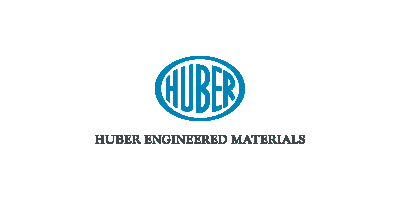J.M. Huber awarded the 2020 IMD-Pictet Sustainability in Family Business Award
Atlanta, GA – The J.M. Huber Corporation was founded in 1883 by Joseph Maria Huber as a single manufacturing plant producing dry colors (pigments for ink) in New York. Over the years, Huber has evolved into a Portfolio Management Company and a global leader in the markets for hydrocolloids, specialty chemicals and minerals, and engineered woods, supplying industries like agrochemicals, beverages, household products, oral care, paper, energy, plastics and construction. Today, Huber is one of the largest privately held companies in the US, with 4,300 employees in over 20 countries across North America, Latin America, Asia and Europe.
The company is fully owned by over 220 family shareholders who all share the vision of keeping it in family hands for the generations to come. The family is well organized with comprehensive family governance structures, such as a family council, education academy, and family office, and nurtures family history and heritage. As the company enters its sixth generation of family ownership, it preserves the legacy of Joseph Maria Huber by adhering to the Huber Principles: Environment, Health and Safety (EHS) and Sustainability, Ethical Behavior, Respect for People, and Excellence. These are the foundations for the way the company conducts business everywhere it operates. The Huber Principles reflect the Family Principles and Family Mission and vice versa – they are the forces enabling individual growth and business growth to become active contributors to the better tomorrow.
Responsible stewardship of the environment has been a central focus of Huber’s business operations since the 1950s. Sustainability, rooted in the Huber Principles, is an inherent part of doing business and corporate governance. Sustainability targets are set at the corporate board level. The board has an EHS & Sustainability (EHS&S) committee, which is chaired by a family member. In addition, the VP of EHS&S is part of the executive team, and sustainability achievements in the organization are recognized by the Mike Huber Award and the EHS&S Outstanding Performance Award.
Huber’s 2018–2022 sustainability strategy, “Prosperity with a Purpose”, is integrated into its overall business strategy, and anchored in three Triple Bottom Line (TBL) pillars: People (Be an admired company and an excellent place to work), Planet (Operate in a way that minimizes our environmental footprint) and Profit (Deliver customer value and corporate financial strength). Examples of TBL activities include: efforts to ensure the safety, diversity and inclusion strategy, “I belong at Huber” (People); industrial-scale solar projects at manufacturing plants (Planet); and Six Sigma for process improvement (Profit). To elaborate further on “Planet” activities, Huber has an enterprise-wide goal of reducing energy, water consumption and CO2 emissions by 10% by 2022. Worldwide, Huber already obtains more than 30% of its energy from renewable sources. Thanks to increased recycling and other reuse of waste, a growing number of Huber sites meet the criteria for zero-waste-to-landfill status.
TBL is an inherent part of reporting, and Huber’s North Star. For example, capital deployment decisions for any investments above US$300,000 are based on a comprehensive analysis, which includes TBL factors (a combination of materiality and business focus). The materiality analysis and dynamic materiality revisions are performed regularly, and the company uses the Datamarán tool, which is a fully automated solution to identify and monitor material ESG risks and opportunities on an ongoing basis.
Several detailed analyses were conducted in support of the company’s 2018–2022 sustainability strategy, including an artificial intelligence scan of stakeholders. The strategy was also aligned with the UN’s Sustainable Development Goals and the “GRI” standards for sustainability reporting. Thanks to these efforts, Huber performs Life Cycle Analysis (LCA), and has created its own “Rapid Screening Sustainability Score Card”, which is the sustainability assessment used in R&D. This is shared with clients, referred to as “growth partners”, with the goal of co-creating common sustainability-based solutions to business challenges. Indeed, sustainability has already driven several innovations, both in the form of products (such as the AdvanTech and ZIP system) and ecosystem development (such as re-purpose surplus plant manufacturing capabilities for local communities in Denmark).
Huber’s “sustainable network” strategy also includes a whole range of outward-looking sustainability activities. Huber continually assesses the sustainability performance of its supply chain partners to ensure that they are aligned with its People, Planet and Profit objectives. Furthermore, transparency in the supply chain is ensured through the careful evaluation of “Tier 1” suppliers’ sustainability credentials. Huber is an A/B member (supplier/customer) of the SEDEX ethical trade organization and conducts self-assessments with scoring tools such as SEDEX, EcoVadis and EcoDesk. Currently, the family shareholders, the board and the top management are involved in a large-scale project to align the vision of the family and the firm with ESG and materiality. Finally, in accordance with the Huber Principles, at least 1% of operating profit is donated to philanthropic activities every year.
Huber is not shy of talking about its sustainability achievements and plans. Indeed, the company believes it has a responsibility to share what it is doing. It has launched a sustainability portal and continues to organize annual company-wide Global Sustainability Forums. The non-family CEO regularly highlights the importance of sustainability in Huber’s business strategy during quarterly reviews of financial performance, employee “town hall” meetings (such as a recent presentation on how sustainability relates to innovation and strategy), board meetings and Annual Shareholders’ Meetings. In 2020, the CEO also issued a bold resolution against racism, which signaled the intention to engage in national and international debate: a major step towards becoming more vocal on the part of both the business and a family that has traditionally been very private.
The company is a member of many industry associations and forums, such as the National Association of Environmental Managers, Manufacturing Association of Productivity and Innovation Sustainability Forum. It has also been recognized by such leadership rankings as the CEO 50, HR 50 and Sustainability 50. Last but not least, the 2013 IMD Global Family Business Award recognized J.M. Huber as an exemplary family firm.

